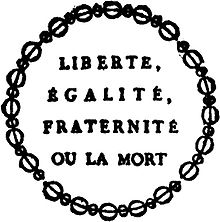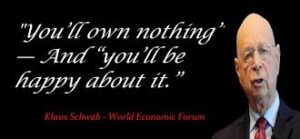
| John-Henry Westen <lsn@news.lifesitenews.com> By now you will have seen that Charlie Kirk, the founder of Turning Point USA and an amazing spokesman for life and family, was shot – murdered – assassinated – on Wednesday, September 10. The suspect is now in custody. Kirk was doing one of his regular Q&A sessions on campus at Utah Valley University when he was shot in the neck. He was taken to hospital and pronounced dead soon after. Many on the Left have been expressing joy at the murder of a man whose life’s work was to have respectful conversations with those who disagreed with him. Charlie thought that the best way to avoid violence and civil war was to discuss differences openly. He thought that if people could sit down and listen to each other, solutions could be found. But many on the Left are not interested in debate or discussion. They don’t want to hear other opinions. They want to suppress, censor, imprison, and even kill, those who disagree with them. And this is not new. For more than two centuries liberal and socialist revolutionaries have imposed their ideologies by shedding rivers of innocent blood. We have to understand that we are engaged in a war in which God and humanity stand on one side, and liberalism on the other. Liberalism is the ideology with which man says to God, “I will not serve. I will not recognise the order that you have created.” Liberalism says, “man is the measure of all things, man is like unto God”. Yet in abandoning God liberal ideology leads to man being treated as less than a beast. Those who are celebrating Charlie Kirk’s death today are not seeing him as a human being, but a man who deserved to die because he opposed their rebellion against God. The response of most people however has been different, whether they agreed with Charlie Kirk’s views or not. Most people will feel sorrow that a life has been cut short so short. They will grieve for a wife, who saw her husband killed in front of her, and for two children who will grow up without their father. Like many people, I was deeply distressed by one video in particular. It showed his three-year old daughter running towards him at a recent event, with such love and joy, and then being caught up in his arms. Now she will never see him again. That should make us weep, and it should make us angry. A lifelong loss has been inflicted on the family of Charlie Kirk. But in their loss we see reflected the countless horrors that liberalism has inflicted on our society. Truly, the number of their victims are too many to count. Charlie Kirk travelled America telling the truth about abortion. He knew that every abortion kills a human being, made in the image and likeness of God. More than one billion babies have been murdered by liberal and socialist governments over the last century. Each of these babies was created by God and known and infinitely loved by him as an individual. But our liberal society cast these precious babies away, as worth less than trash. We cannot continue to live like this. We must not tolerate any longer the liberal war against that which is most precious and most beautiful. And abortion is only one of the evils inflicted on our society by liberalism. Children are being corrupted and mutilated, the elderly and disabled are being put down like animals, and those who dare to defend the vulnerable risk being persecuted and imprisoned. One thing is clear. Liberalism must be defeated once and for all. But our methods are not their methods. Their methods are lies, hatred, and violence. Our methods must be truth, love, and prayer. And now our courage to proclaim the truth, the fire of our love, and our commitment to prayer, must be stronger than ever before. We must be absolutely uncompromising in exposed the bloodthirsty liberal agenda which has as its goal the killing and mutilation of innocent human beings. We must be absolutely uncompromising in our opposition to the global totalitarian structures which are being put in place to suppress true speech and prevent us from living and worshipping according to God’s law. We must be absolutely uncompromising in telling the truth about ideologies which threaten the peace and stability of the world. And we must be absolutely uncompromising in our opposition to the false pastors who work to corrupt the Catholic faith and keep souls from knowing and loving Jesus Christ. The truth is that by obscuring the truth of Christ, these men do the most evil of all. While we tell the truth without fear or favor, we must also beabsolutely uncompromising in our adherence to the law of charity. We must love our enemies and pray for their salvation. We must never forget that those who oppose us, no matter what evil they may do, are made in the image and likeness of God, and are called, with us, to one eternal destiny. We must never fall into the trap of dehumanizing our enemies as they dehumanize us. Christ died to redeem and save all mankind, no matter how deep into sin we may have fallen. But while Christ said, “love your enemies” he did not say “you have no enemies.” We have enemies. And they want us dead. Now is the time to stand and fight, if not for ourselves, then for those – like Charlie Kirk’s daughter – who cannot defend themselves. Weakness in this fight is a betrayal of the vulnerable. Weakness means more dead babies. Weakness means more mutilated children. Weakness means more young men like Charlie Kirk will pay the ultimate price. Pope St Pius X is supposed to have said: “All the strength of Satan’s reign is due to the easygoing weakness of Catholics.” The time for such weakness is over. Today LifeSiteNews recommits itself to the truth. We will defend life, we will defend the family, we will defend freedom. And, through Sign of the Cross Media, we will expose the truth about the war against the Church, no matter the cost. If you would like to support our mission, you can do donate to LifeSiteNews or Sign of the Cross Media. Every donation will help protect the weak and build a better world for our children. But most of all I ask you to join me in prayer for Charlie Kirk and for his wife, children, family and friends. May God give them his peace. And may God bless you and keep you safe, John-Henry Westen CEO and Editor-in-Chief LifeSiteNews Sign of the Cross Media PS: If you prefer, you can mail your donation to our U.S. or Canadian offices, or call (888) 419-6165. US MAILING ADDRESS LifeSiteNews.com 4 Family Life Lane Front Royal, VA 22630 CANADIAN MAILING ADDRESS LifeSiteNews.com 157 Catharine St N, Unit 2 Hamilton, ON L8L 4S4 |



